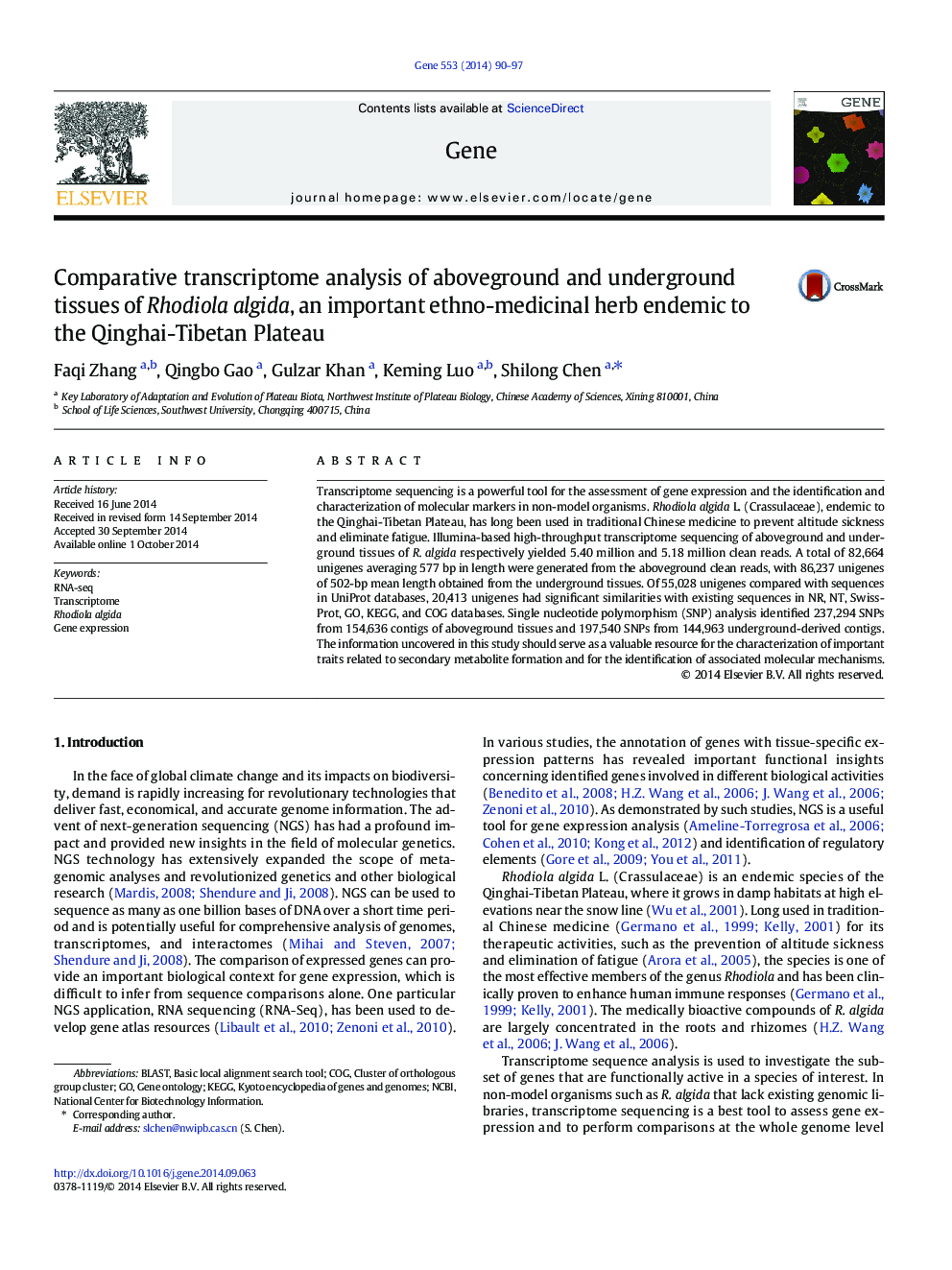| Article ID | Journal | Published Year | Pages | File Type |
|---|---|---|---|---|
| 2816066 | Gene | 2014 | 8 Pages |
•We perform comparative transcriptome analysis of aboveground and underground tissues of Rhodiola algida.•A total of 11,112 differentially expressed genes were assigned to KEGG pathways.•We detected 434,834 heterozygous SNPs in the two samples, of which 255,959 were transitions and 178,875 were transversions.
Transcriptome sequencing is a powerful tool for the assessment of gene expression and the identification and characterization of molecular markers in non-model organisms. Rhodiola algida L. (Crassulaceae), endemic to the Qinghai-Tibetan Plateau, has long been used in traditional Chinese medicine to prevent altitude sickness and eliminate fatigue. Illumina-based high-throughput transcriptome sequencing of aboveground and underground tissues of R. algida respectively yielded 5.40 million and 5.18 million clean reads. A total of 82,664 unigenes averaging 577 bp in length were generated from the aboveground clean reads, with 86,237 unigenes of 502-bp mean length obtained from the underground tissues. Of 55,028 unigenes compared with sequences in UniProt databases, 20,413 unigenes had significant similarities with existing sequences in NR, NT, Swiss-Prot, GO, KEGG, and COG databases. Single nucleotide polymorphism (SNP) analysis identified 237,294 SNPs from 154,636 contigs of aboveground tissues and 197,540 SNPs from 144,963 underground-derived contigs. The information uncovered in this study should serve as a valuable resource for the characterization of important traits related to secondary metabolite formation and for the identification of associated molecular mechanisms.
